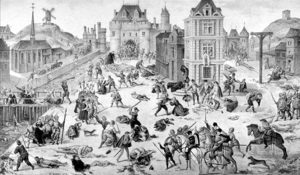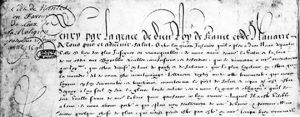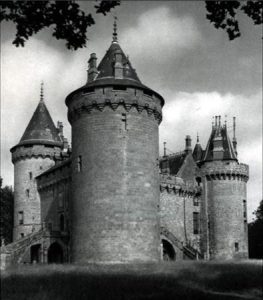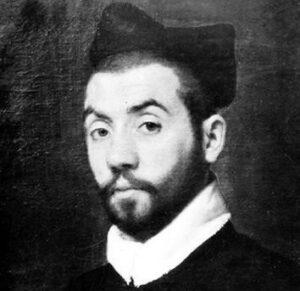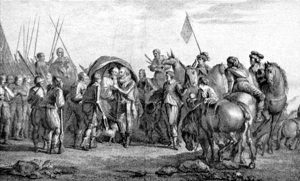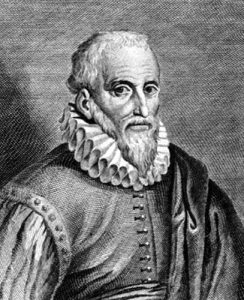Troubled times
The portraits presented have been selected amongst the best known or – as with Claude du Chastel – amongst the most picturesque.
They were witnesses of their times. Their lives were deeply affected by troubled years from the early days of the Reformation in France until the end of the wars of religion in 1598, when King Henri IV imposed the Edict of Nantes.
Coligny was assassinated on Saint Bartholomew’s Night in 1572. Others managed to escape the massacre.
Some – such as Bernard Palissy and Claude Goudimel – died for their faith. Many had to take refuge abroad, e.g. Jean Calvin, Clément Marot, Robert Estienne, François Hotman.
In 1593 Henri IV’s conversion to Catholicism raised passionate controversies. Some, such as Sully, had encouraged this conversion, whereas others had severely criticised it ; amongst the latter featured Agrippa d’Aubigné and Jean de Sponde. But finally the latter also converted to Catholicism !

